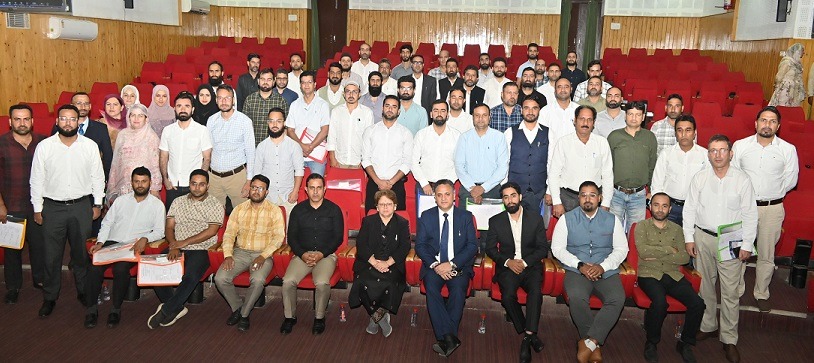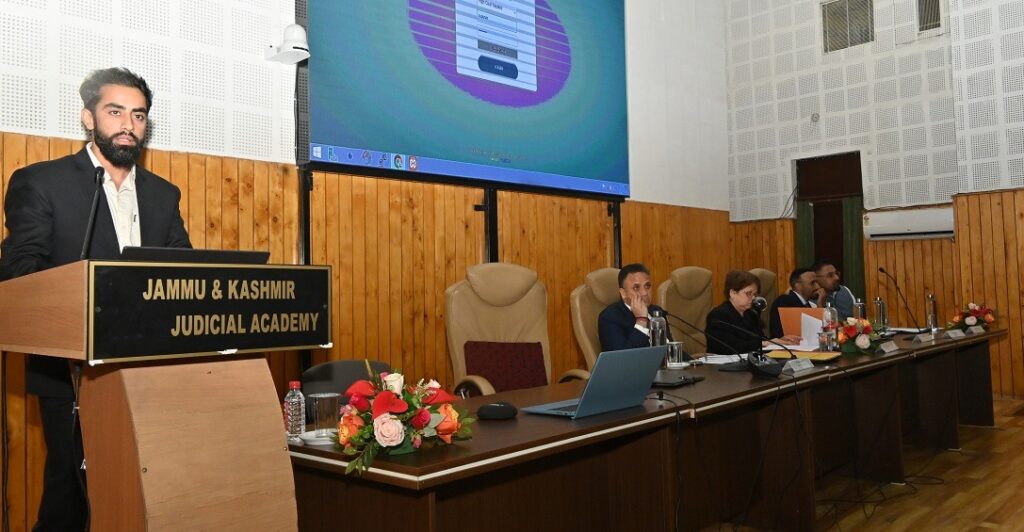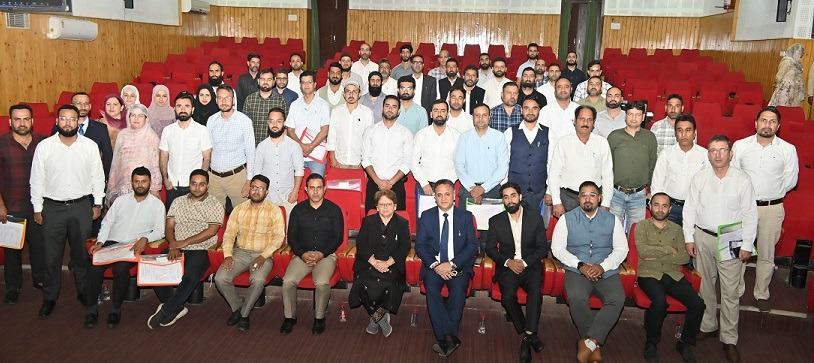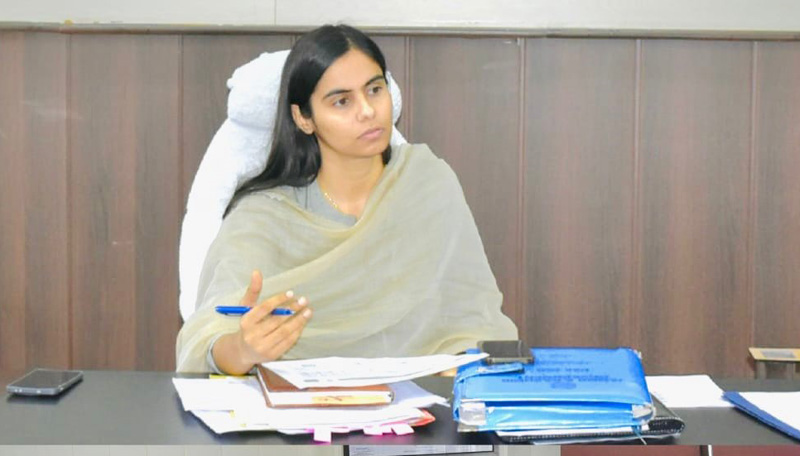SRINAGAR: The Jammu & Kashmir Judicial Academy (JKJA), guided by its Governing Committee, organized a one-day technical training programme focused on strengthening digital capacity within the judicial system.
The sessions, chaired by Anoop Sharma, Registrar IT, and Sonia Gupta, Director, JKJA, featured senior experts from the National Informatics Centre (NIC), Pune, who provided in-depth insights into key components of the e-Courts Project. The training aimed to modernize case management systems, enhance data monitoring, and streamline digital filing processes, equipping staff with essential technical skills for effective integration of Information and Communication Technology (ICT) in judicial operations.
The programme began with an address by Jagdish Chhailkar, Scientist-F, who introduced participants to the upgraded Case Information System (CIS 4.0), highlighting its advanced functionalities for improving court procedures and accessibility. Ashish Shiradhonkar, HOD COEE and Scientist-F, followed with a session on the e-Courts Project, discussing its nationwide implementation and its role in promoting uniformity and efficiency across courts.


Bharati Jadhav, Scientist-D, then presented on Data Centre operations, Virtual Machines, and Replication systems, underlining their importance in ensuring the security, reliability, and continuity of judicial data. Munishwar Bajolia, Scientist-D, spoke on e-Filing and the Interoperable Criminal Justice System (ICJS), demonstrating how these platforms enhance transparency, expedite case processing, and enable seamless coordination among courts, police, and other justice institutions.
Amol Avinashe, OIC-Infra and Scientist-F, conducted a session on NJDG Intra, establishment tagging, JSON import, and data monitoring tools, emphasizing their role in real-time analytics and efficient judicial resource management. The final technical session, led jointly by Wasim Khan, Senior Technical Officer, and Tajamul, Developer, provided hands-on insights into system development, troubleshooting, and user support. They stressed continuous monitoring, adaptive solutions, and user-centric development as key to sustaining digital transformation in courts.
The programme remained highly interactive, with participants engaging in discussions, seeking clarifications, and sharing experiences, enriching the overall learning experience. JKJA reaffirmed its commitment to fostering a technology-driven judiciary and to conducting regular training programmes to strengthen institutional capacity.













